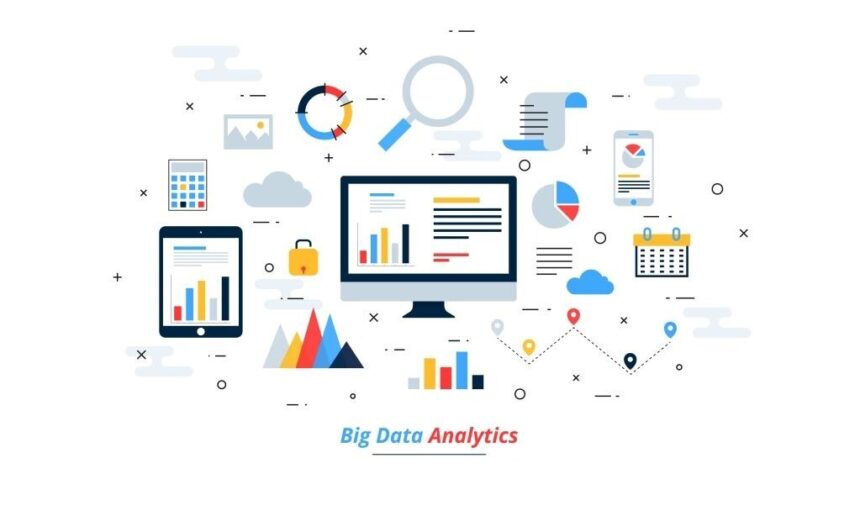Turns out that, as far as AI and data are concerned, 2001 was not the year we humans should have been focusing on. However, 2025 just might be. That?s the year experts at research group IDC predicted that the world will be producing a staggering 163 zettabytes annually. A single zettabyte is one trillion gigabytes, and to put that in perspective, up until now we haven?t even cracked 35 zettabytes annually. Still, some 90% of all the data in the world was created in the last two years alone. That?s a lot of momentum in data production. Every internet search, click, share, like and swipe contributes to the some 2.5 quintillion bytes of data all of us collectively generate each day. This is only supercharged by the Internet of Things to the point that IDC predicts we?re looking at a 10-fold data increase by 2025. What?s also interesting to consider is how technology, like artificial intelligence, will evolve and how it will relate to all this new information. All of this is particularly important for marketers, because it?s at the intersection of mass information generation and technology that we?ll know what big data analytics will look like in 2025. Below we look at some predictions at where Big Data will be at this time, how it will get there, and what it all means for marketing. Note that many of these insights were revealed in IDC?s research paper, Data Age 2025.
The machines will indeed rise
More than that, businesses will rise with them. IDC predicts that by 2025 60% of the world?s data will be managed by companies. This isn?t merely personal information, either?this is life-critical data that will touch everything that impacts our daily existence, be it healthcare solutions, global food-supply initiatives, and even road traffic conditions. The reason this will be possible has to do with the advancements in technology like the IoT, machine learning, and embedded systems. Machines and AI will provide the ability and operational structure to support those 163 zettabytes of information that IDC predicts we?ll reach. Obviously, this means the cloud will grow in tandem with the data being produced, and machine learning will further shoulder the burden of interpreting all the data. Concerning analytics, the ultimate prediction is that global data that is subject to analysis will grow 50-fold, and a quarter of that will be real-time generation.
Reduction in physical infrastructure
Building off the point above, the rapid rise and evolution of cloud technologies is going to further play a crucial role in data management by 2025. It will likely even be the lynchpin on which data management hinges. Consider all the sources that cloud computing manages today. These include:
- Virtual network info
- Inventory and shipment tracking
- Customer behavior data
- Security information
- Geolocation data
- Anomaly detection
- Social channel data
- Compliance info
And much more. At this point, today, even IT infrastructure can exist in a virtual state, so the crucial thing is to take a holistic approach to big data management. Cloud storage achieves this now and will only improve as we see further reductions in on-site physical infrastructure to the point where virtual technologies almost totally control data and humans become increasingly reliant on the digital tools used to manage them.
Serverless computing
In a relatively short space of time we?ve seen an evolution from the time when big data managing and processing was done on site to the rise of cloud-based platforms and the ability to outsource data management on a massive scale. However, recently we?ve seen the rise of a trend known as ?serverless computing,? and this will only evolve through 2025 as well. The notion of serverless computing first appeared on a wide scale in 2014 when Amazon released their AWS Lambda platform. Many designers love serverless computing because of its improved scalability of applications, improved developer efficiency by eliminating infrastructure issues, and of course the cost benefits of this platform as opposed to managed server clusters. To that final point, serverless architecture takes less time to implement than managed server systems and it also offers fault tolerance, so there?s no need for an administrator. What we can all but count on is that as serverless technology evolves, so too will data science right along with it. This will address some fundamental questions modern businesses have regarding data management. Will serverless reduce my big data solutions costs? Will it reduce my operational costs? What skills will be required to oversee these platforms? It will be interesting to see just how the evolution of serverless answers these questions and more. But there is one thing that?s all but guaranteed: just like serverless has allowed developers to better manage code, it will also allow businesses to better manage large data pipelines. We?re already moving in that direction now, so by 2025 expect it to be commonplace for serverless data pipelines to be humming along like a dream at significantly reduced operational costs than what we?re seeing with current cloud technology and managed server clusters. Most interestingly, when you combine that with the advances in machine learning, what we?re looking at is the ability to control unheard of amounts of data on the cheap and with the roaring AI engines to shoulder the burden of analyzing it all. In that sense, by 2025 marketers can expect to wield powers of analytics more awesome and potent than anything dreamed of before.
Conclusion
The misconception about big data is that the value lies in the collecting mass amounts of information and interpreting it. This really isn?t the case. The ultimate value derives from the specific actions? businesses take after analyzing such data. And if the above insights serve to highlight anything, it?s that in 2025, AI will be playing a crucial role in helping us to sift through enormous data lakes stored via serverless computing, and helping us to use it more effectively. So, the future isn?t so much ?big data: as it is ?business intelligence,? and how all information can be applied to the benefit of an organization.










